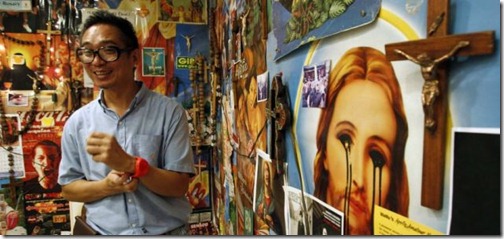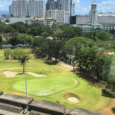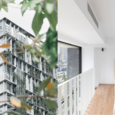After careful deliberation, the Cultural Center of the Philippines has decided to temporarily close down the “Kulo” art exhibit as a preventive security measure. And it roots from one controversial artwork.
Mideo Cruz and “Poleteismo”
The exhibit was entitled “Kulo” and it housed several artworks including “Poleteismo” (Polytheism). Poleteismo is a mixed-media collage showing religious objects placed side-by-side with phallic instruments. The installation was created by Mideo Cruz.
The said artwork has drawn a lot of criticisms from different religious groups and organizations. Some priests and bishops allegedly referred to the artworks as “blasphemous” and “sacrilegious”. Congresswoman Imelda Marcos said that it was not art but it was rather obscene.
Here is the official statement of CCP on the closure of the ‘Kulo’ exhibit:
“Due to numerous emails, text messages and other letters sent to various officers of the CCP, and to the artists themselves, with an increasing number of threats to persons and property, the members of the Board of the Cultural Center of the Philippines have decided to close down the Main Gallery where the “Kulo Exhibit” is on display. This decision was made amidst controversy and deliberation by the Board as to what steps are necessary to avoid future similar incidents.
In the light of the foregoing developments and recent experience, the CCP management has reviewed its policies and are now taking steps to enable its officers and staff to make more informed decisions in the future.”
On the other hand, artists and cultural workers from Concerned Artists of the Philippines raised their voices in support of Cruz’s artworks.“We welcome the CCP’s call for a dialogue on the exhibit, believing that criticism of our work is part of the artistic process and contributes to the growth of the artist. We caution critics, however, not to resort to intimidation and defamation that threaten the artist’s freedom of expression,” said CAP Secretary-General Prof. Neil Doloricon of the University of the Philippines College of Fine Arts.





